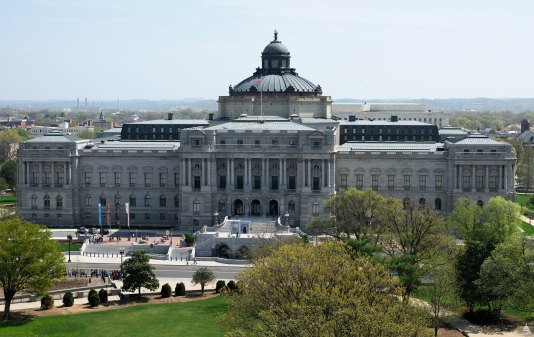Library of Congress, Copyright Office butt heads over IT vision
The Library of Congress took a critical step in hiring a chief information officer in September, a senior Government Accountability Office official told lawmakers. But, he said, it’s still unclear whether Library of Congress’ newly minted tech exec has the power to sort out the digital woes plaguing the agency.
“It remains to be seen whether this position will have clear responsibility and adequate authority to drive needed improvements,” said Joel Willemssen, GAO’s managing director for information technology. He added that Library CIO Bernard Barton Jr. must be able to oversee mission-critical technology and must take a leading role in managing commodity IT — things like laptops and email systems.
The hearing, held by the House Administration Committee, comes in the wake of a GAO report released earlier this year that slammed the management of the Library of Congress’ IT and issued 31 recommendations for improving its practices. The Copyright Office, which depends on the Library for its IT, also faced criticisms in a separate GAO report, though the watchdog noted that the Library’s subpar systems “hindered” the Copyright Office’s ability to “meet mission requirements.” Just this summer, Library systems went down for more than a week, making it impossible for users to file copyrights for creative works, like books and music, online.
During the hearing, U.S. Register of Copyrights Maria Pallante reiterated a call for more autonomy over her agency’s technology. She referenced a report her agency released Tuesday that laid out a five-year plan that heavily focused on technology improvements.
“What we’re asking for is the autonomy to make sure that IT is intertwined with our business and legal expertise,” Pallante said. (Some House lawmakers have been shopping a draft bill to make the office an independent agency, but the legislation has yet to be introduced.)
Pallante also underscored the need to update the office’s 10-year-old copyright registration system, called eCO — which she said was “probably outdated by the time it was implemented.” The system, she said, simply replaced rather than improved upon paper copyright registration forms. It doesn’t have a digital interface that is interoperable with the private sector technology and isn’t flexible enough to be updated as copyright law evolves, she said. Problems with eCO were also highlighted in the GAO report.
Sitting beside Pallante was her boss, acting Librarian of Congress David Mao, who touted the improvements the agency has made in the wake of the reports. He said the Library was working on a strategic plan, to be released by the end of the year, for addressing GAO’s recommendations.
So far, Willemssen acknowledged the agency has kept better track of its IT assets and spending, and has worked to improve its security. Though Mao acknowledged more work needs to be done.
“I assure you that these areas are now a top priority,” he said during his opening remarks. “We have work to do to achieve a high-performing IT environment that supports the entire Library of Congress.”
The mood at the hearing was tense. At times, Pallante shook her head during back and forths between lawmakers and the witness panel. And Rep. Richard Nugent, R-Fla., noted that Pallante “kind of rolled [her] eyes” during an answer to a question about the authority of the Library’s CIO.
“Obviously, there’s some angst here,” Nugent said, referring to the agencies.
Democratic Rep. Zoe Lofgren of California, the only member of the committee to also serve on the House Judiciary Committee, said there is “great value” in allowing the office to stay within the Library. At the same time, she said she recognized the complexity the Library’s IT problems.
“Your predecessor did many wonderful things in his long career,” Lofgren said to acting Librarian Mao. “Being a techie was not one of his fine points. So you have your work cut out for you.”






